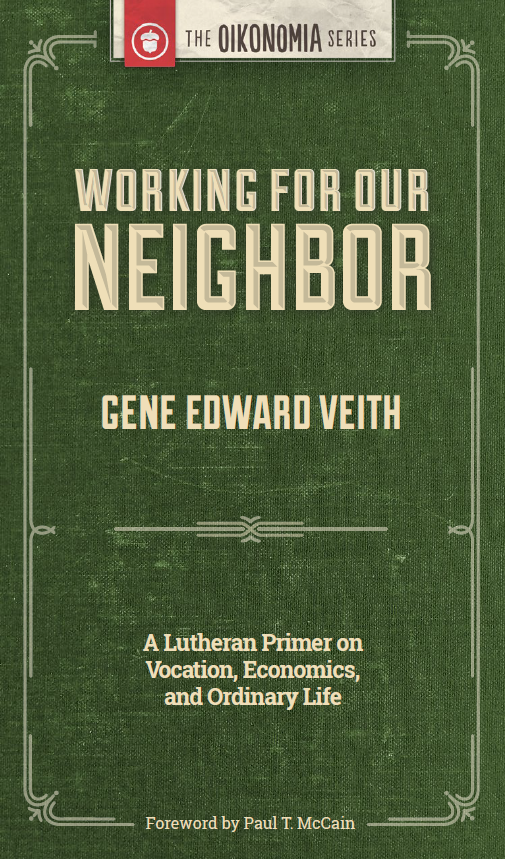Amid modern society’s more common materialistic assumptions about business and economics, Christians have a great deal to contribute when it comes to reviving and sustaining a transcendent view toward work and calling. Yet in highlighting the centrality of vocation, we risk the adoption of a different set of misaligned priorities and assumptions.
For too many, our renewed emphasis on “vocation” is quickly misconstrued as an imperative to “follow your passion” or “live your dreams” — a cozy affirmation of our culture’s hedonistic refrains about “doing what you love and loving what you do.”
For those left unsatisfied by the lure of materialism, it seems like a good replacement. Unfortunately, without the proper arc and aim, it’s bound to lead to the same dead ends of self-focus and self-indulgence. Writers and theologians like Frederich Buechner have only served to further this misconception, defining vocation as “the place where your deep gladness meets the world’s deep need.”
While vocation can surely manifest as such, is this really what it’s about?
For Jo Swinney, Buechner’s definition is mostly correct, but serves as an occasion not to embrace or pursue vocation, but to toss out the idea altogether. If vocation is fundamentally about personal happiness in our work, Swinney argues, it’s “a luxury only afforded to the most privileged on the planet,” bound to lead to “dissatisfaction for those who are doing ‘just a job.’”
Swinney’s underlying impulse is correct. But is the idea of “vocation” really the problem?
As Gene Veith points out, vocation (properly understood) is about love and service to neighbor, and if we hope gain and absorb that understanding, we’d do well to start with Martin Luther:
According to [Luther], vocation is God’s calling to love and serve our neighbors in the tasks and relationships that He gives us. Also, our “jobs” are only one facet of our vocations and probably not the most important: we also have callings in the family, the church, and the society. And our vocations are not just where we find our fulfillment but also where we bear our crosses…
…So, in terms of Luther’s Biblical doctrine of vocation, in answer to [Swinney’s] questions, yes, the Kenyan construction worker and the Bangladeshi woman sewing buttons have vocations. (Vocation honors labor that the world looks down upon.) Yes, being a wife, mother, sister, etc., is just as important as getting paid for a job–indeed, more important, the family callings being the most fundamental.
 As Veith explains in his book, Working for Our Neighbor: A Lutheran Primer on Vocation, Economics, and Ordinary Life, “Vocation counters the materialism and self-centeredness of economic pursuits by giving them a new meaning and a new orientation.” It dismantles the self-centeredness of our age, from the materialistic pursuit of personal wealth to the emotional pursuit of self-actualization:
As Veith explains in his book, Working for Our Neighbor: A Lutheran Primer on Vocation, Economics, and Ordinary Life, “Vocation counters the materialism and self-centeredness of economic pursuits by giving them a new meaning and a new orientation.” It dismantles the self-centeredness of our age, from the materialistic pursuit of personal wealth to the emotional pursuit of self-actualization:
For Martin Luther, vocation is nothing less than the locus of the Christian life. God works in and through vocation, but he does so by calling human beings to work in their vocations. In Jesus Christ, Who bore our sins and gives us new life in His resurrection, God saves us for eternal life. But in the meantime He places us in our temporal life where we grow in faith and holiness. In our various callings — as spouse, parent, church member, citizen, and worker — we are to live out our faith.
… Luther’s doctrine of vocation with its radical, neighbor-centered ethic displaces good works from the realm of the merely spiritual into the realm of the material, the social, and the ordinary.
We sometimes talk about serving God in our vocations. Luther might take issue with this formulation, if by it we imagine that we are performing great deeds to impress the Lord, and especially if we mistreat others in doing so. There is, however, a sense in which we do serve God in our vocations. Jesus himself tells us that what we do (or do not do) for our neighbor in need, we do (or do not do) to Him (Matt. 25:31–46). So, when we serve our neighbors, we do serve God, though neither the sheep nor the goats realized at the time whom they were really dealing with (vv. 32–33).
Our modernistic and hedonistic sensibilities will surely resist such a framework, arguing, rather ironically, that all this amounts to different sort of sentimentalism and emotionalism.
But just as vocation is not spiritual frosting for materialism, it’s also not an excuse for pleasure-seeking and “following your passion.” Vocation is a “school of charity” and a “means for crucifixion,” as Benjamin Mann puts it, a framework for serving human neighbors unto the glory of God.
Ours is a service not of our own design or choosing, and when we orient our lives accordingly, it’s far more powerful because of it.
Photo: Public Domain

